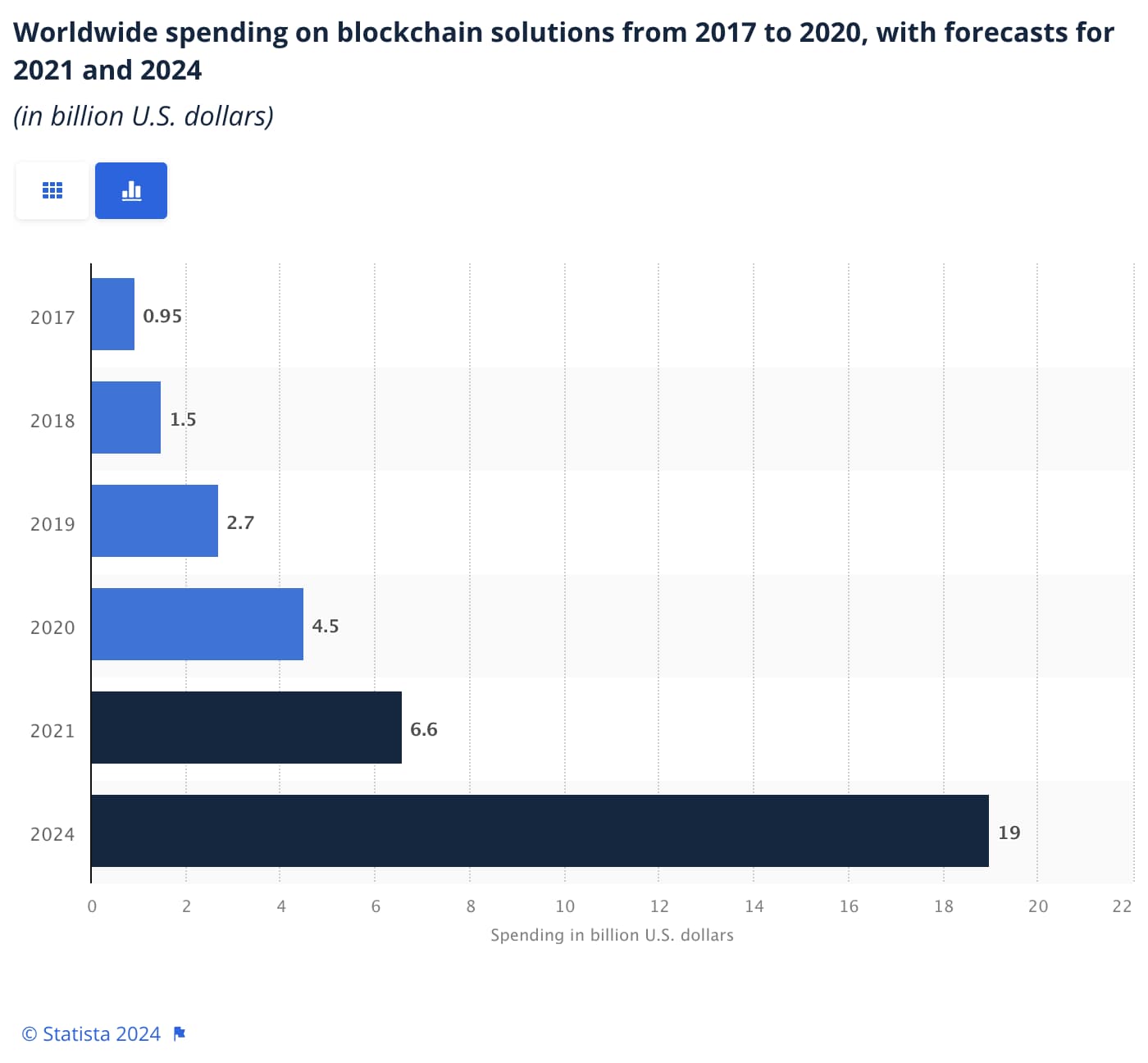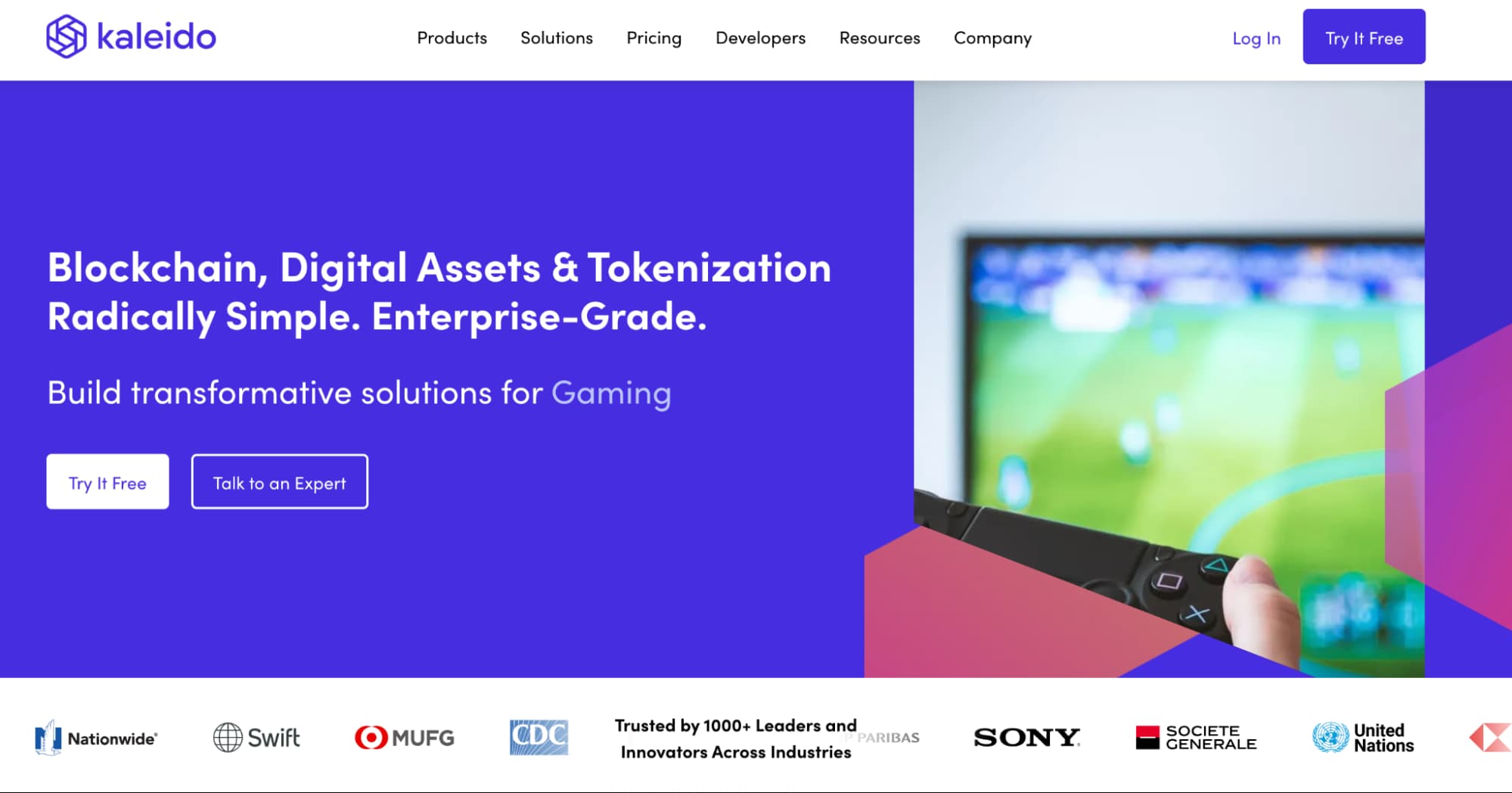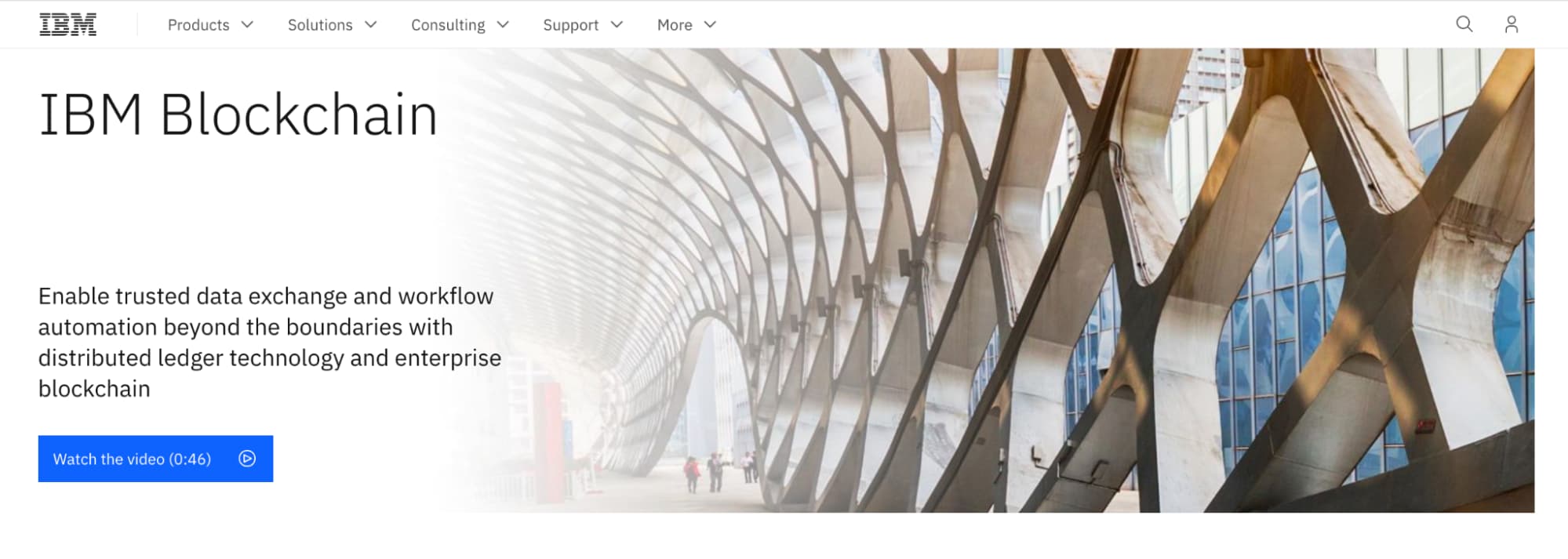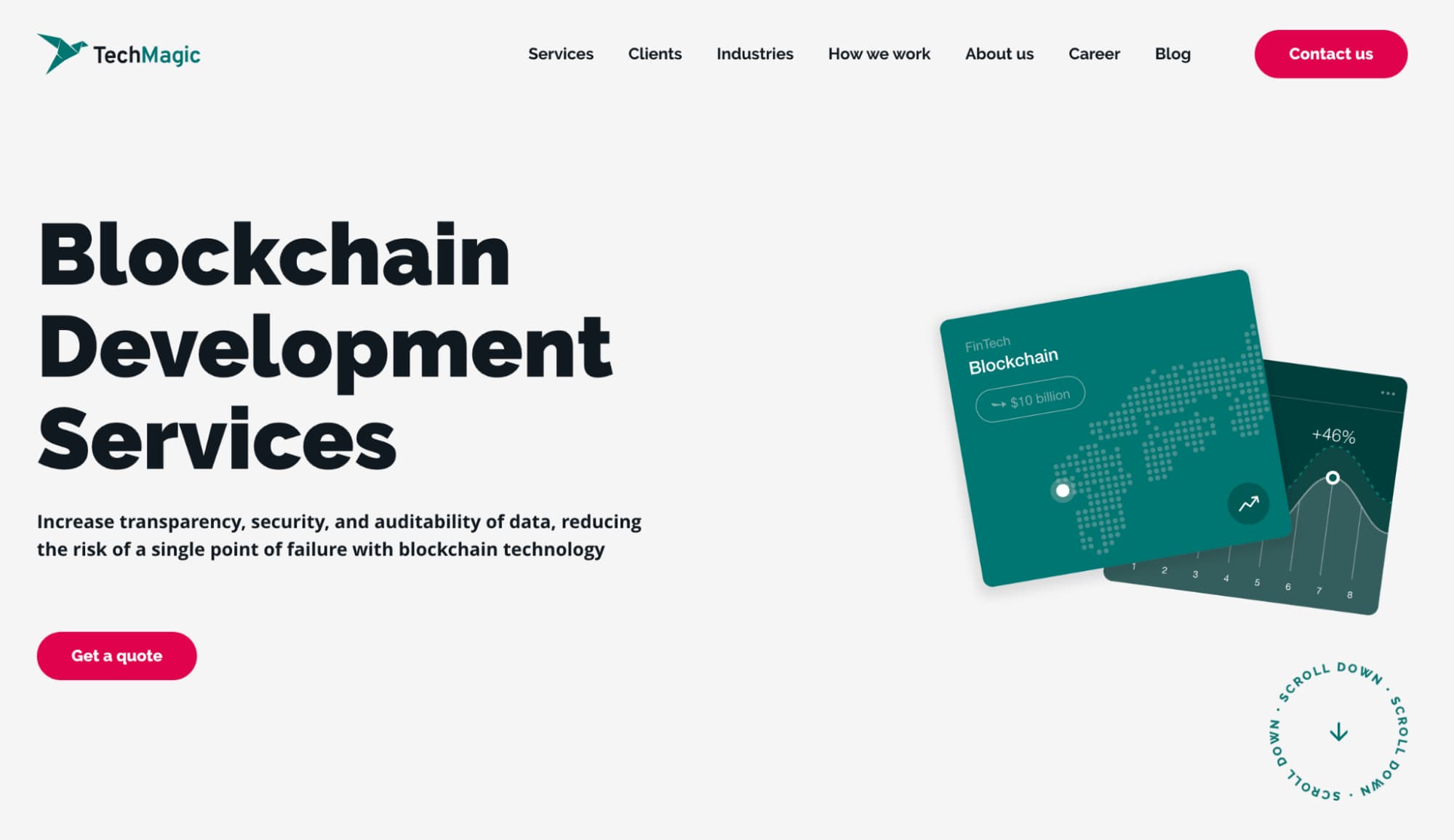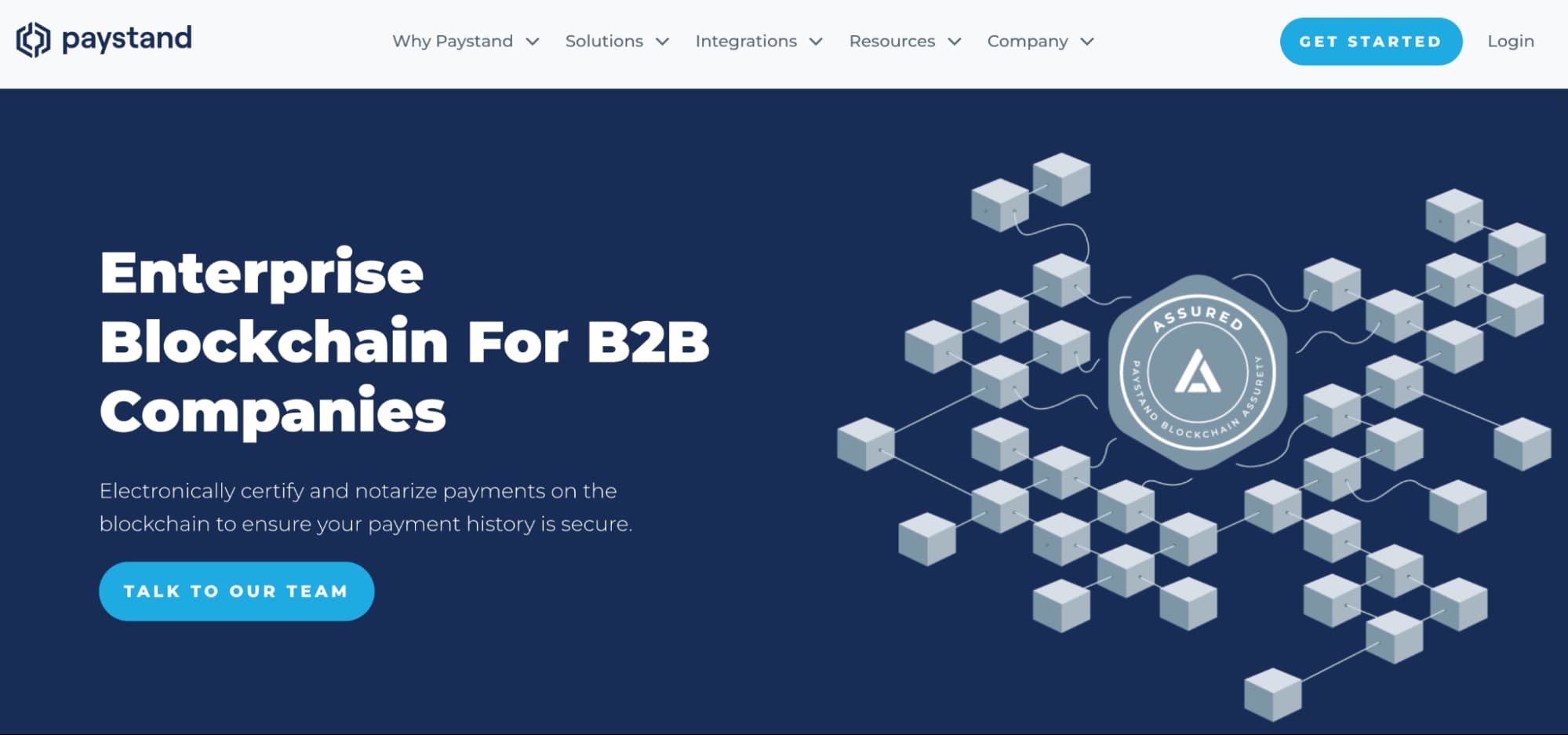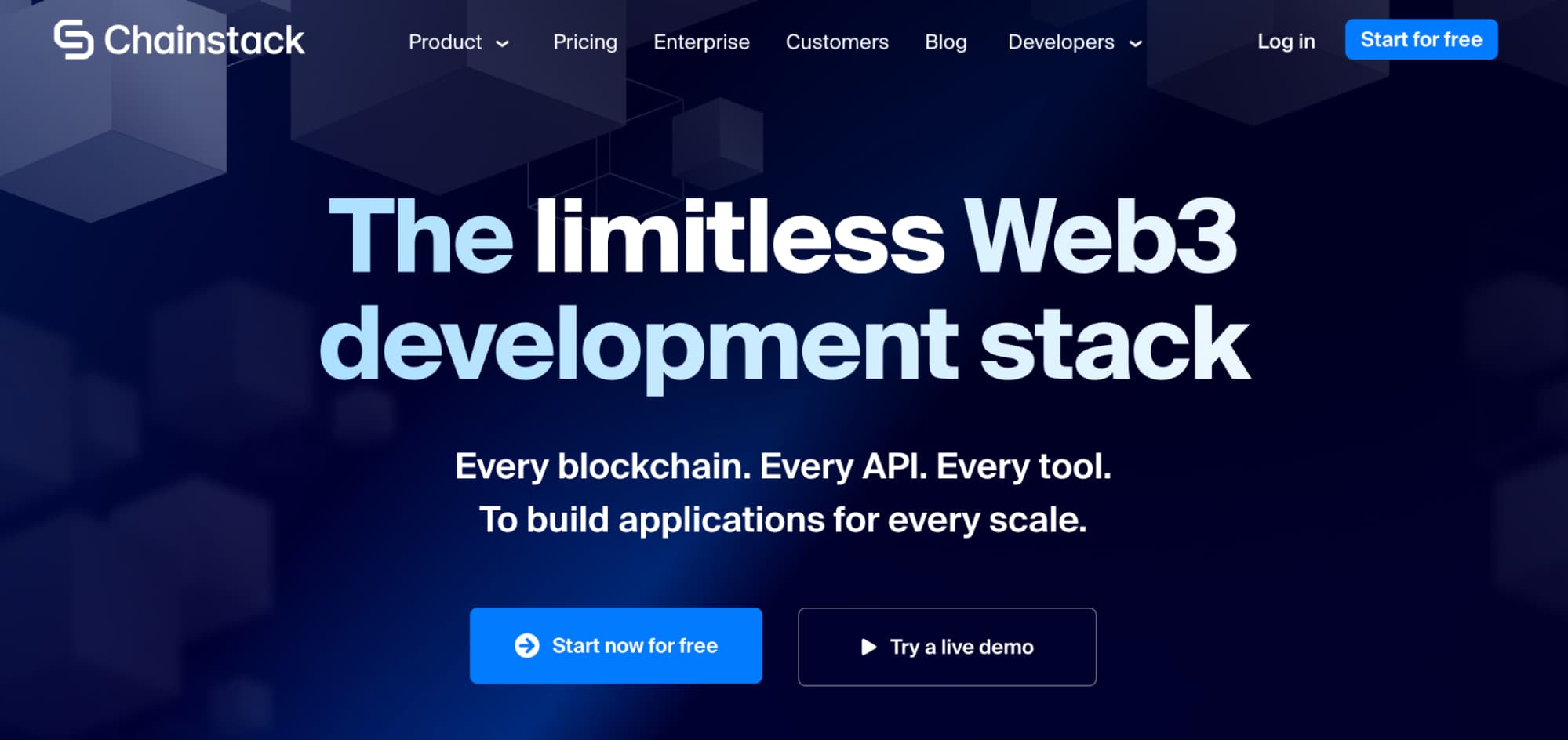Blockchain in HR: A guide for HR professionals interested in cutting-edge technology
Blockchain is more than just a buzzword associated with cryptocurrency. It’s a data storage technology that could change HR processes and workforce management for the better.
Using blockchain in HR effectively, you could:
Improve productivity by automating business processes
Make data tamper-proof to prevent fraud and increase employee security
Use smart contracts to ensure all actions are recorded clearly
Verify worker skills and performance with greater efficiency
Research suggests that up to 87% of business owners are at least “somewhat” likely to invest in blockchain technology within a year.[1]
Therefore, non-blockchain users are at a crossroads. Failure to invest could leave them lagging behind savvy blockchain recruiters diving deep into the tech.
However, it’s understandable you might have some concerns. After all, it is still a relatively new HR technology trend that can be complex.
In this guide, we explore what blockchain can do for HR, review some top software, and share how to work it to your advantage.
Table of contents
- What is HR blockchain technology?
- Why is blockchain for HR important to human resources professionals?
- The benefits of blockchain technology in HR
- The 5 best HR blockchain systems
- 6 best practices for leveraging blockchain HR technology in your human resources department
- Blockchain in HR: Invest now and benefit later
- Blockchain in HR FAQs
What is HR blockchain technology?
Blockchain stores data across a network of decentralized computers. That means information splits between many sources instead of being centralized in a single drive. Data can then be called upon from those sources securely and without intermediaries.
Blockchain is known as a “distributed ledger." It consists of different "blocks" which link together through cryptography.
In HR technology, some use cases for a blockchain network include:
Recording employee data and establishing employment contracts
Supporting recruitment processes
Providing digital reward wallets for employee incentives
Making salary payments more secure and efficient
By splitting data across crypto blocks, transactions such as contracts and money transfers are recorded without risking alteration.
Employee records under blockchain achieve this kind of immutability because altering records on a blockchain would need the consensus of thousands of linked computers.
Why is blockchain for HR important to human resources professionals?
Blockchain recruiting and management appeals to HR leaders because it opens up possibilities for more seamless operations.
For instance, HR professionals can access fixed employee and financial record blocks, speeding up onboarding software while ensuring people receive fast payments.
Blockchain promises simpler, more direct recruitment. Irreversible records let HR bypass repetitive security checks, removing third parties.
Right now, blockchain technology is still evolving, but businesses are waking up to its advantages. Research suggests that blockchain technology spending has nearly tripled in the space of three years:
Such advantages include faster, more transparent recruitment ahead of the competition and greater employee protection – helping to make your employer branding more appealing.
Given the rising interest in this recruiting technology, now would be the time to invest in and benefit from being an early adopter.
That said, many companies are wary of the concept due to its lack of regulation, confusion on how it works, and belief that the tech is overhyped.
A Deloitte survey showed that 39% of companies responding felt blockchain was receiving more hype than warranted. However, even then, 68% still believed they would lose a competitive edge if they didn't adopt it.[2]
As the survey cited in our introduction shows, interest seems to have increased dramatically. The jury is still out on whether the adoption of blockchain will pay off, however. To help with that question, let’s look over some possible benefits blockchain could have on the future of work.
The best insights on HR and recruitment, delivered to your inbox.
Biweekly updates. No spam. Unsubscribe any time.
The benefits of blockchain technology in HR
Used effectively, blockchain technology in HR could:
Increase cybersecurity
Encourage transparency
Simplify financial transactions
Streamline recruitment
Let’s explore these points.
1. Increase cybersecurity
Given that HR handles high volumes of sensitive data, it's understandable that professionals worry about information getting exploited.
Using blockchain helps HR to encrypt and store employee data with greater confidence.
Blocks prevent people from overwriting or counterfeiting data because there needs to be a consensus for alteration.
However, although blockchain can enhance data security, some suggest it presents a new set of risks.
For one, the more endpoints there are used in a blockchain, the more risk there is of data going awry. A lack of governance, too, means there's no central oversight.
These points add to worries raised by high-profile cryptocurrency fraud, such as the PancakeBunny attack in 2021. This security breach led to the loss of more than $200m in crypto assets.[3]
Don’t get it confused: Blockchains are still effectively unhackable. Technologies “adjacent” to it are still vulnerable, though. For example, hackers could steal native security keys for digital wallets and edit blockchains fraudulently.
Although clear benefits exist, these points are worth considering before blindly leaping into blockchain investment. If you plan on investing in blockchain, be sure to keep track of all possible entry points to make the most of its security advantages.
2. Encourage transparency
Introducing blockchain into an HR tech stack ensures employee and recruitment data is reliable and widely free to check.
Research suggests that provenance, i.e., ease of tracking, tracing, and establishing data, is the leading driver for corporate blockchain adoption.
“Smart contracts” with this in mind can confirm terms agreed between employees and HR with certainty. For instance, a quick check of an immutable record answers a dispute instantly.
HR professionals use blockchain technology with performance management systems. They record reliable feedback from employees and managers, pulling skills test data into blocks they can check at a glance.
3. Simplify financial transactions
A system pairing blockchain and human resources helps to make financial transactions and payroll software more efficient.
For example, they could use smart contracts to pay employees once targets are met automatically, something especially useful for gig economy jobs. By creating a clear set of hours in a smart contract, once these hours are logged and verified, payments transfer immediately.
Smart contracting saves administrative time, effort, and costs for payroll staff.
What’s more, some companies use cryptocurrency payments to support international teams, ensuring remote employees get fair wages and exchanges.
Around 37% of businesses already use blockchain to simplify cross-border financial transactions, and at least 13% are interested in adopting it.
4. Streamline recruitment
Smart contracts help to reduce time-to-hire and improve recruitment quality.
Uneditable contracts help HR to check applicant details and verify identities, cutting time and effort. If that data is already verified and established on a blockchain, there’s no need to keep running future checks.
Alongside talent assessment tests, verifiable smart contracts help HR make more confident hiring decisions. Blockchain contracts satisfy time-consuming background checks, while skill tests ensure people are hired purely on their talent.
Although it’s wise to test for skills first and to avoid relying on experience checks outright when recruiting, using blockchain saves the potential expense and effort of managing resume screening software.
The 5 best HR blockchain systems
Now you know a little bit about the potential benefits of blockchain in HR, it's time to consider the best platforms to experiment with.
When comparing tools, remember that blockchain for HR is still considered niche, and the technology has something of a learning curve.
Factors we considered
We prioritized the following when researching blockchain in recruitment:
Ease of use and learning curve
Value for money
Specializations, e.g., finance streamlining, smart contracts
Integration with other software
Scalability
You likely have priority factors you need to consider when researching HR blockchain tools that might not appear on this list. So, use this template as a rough guide to help build your buying decisions.
Consider, too, that you might need to hire a blockchain developer to help set up blocks for the first time.
Blockchain technology in HR: 5 systems to consider
Blockchain system | Pros | Cons |
1. Kaleido | - Built with scalability in mind - Removes the need to work with different blockchain vendors for different HR functions
| - Pricing might get complex as you scale - Trades away some control for ease of use |
2. IBM Blockchain | - Backed by extensive support and security protocols - Open-source platform supports high scalability and control | - Relatively costly compared with rival platforms - Doesn’t have the gentlest learning curve |
3. TechMagic | - Gives a complete consultation service to analyze your needs - Experts in building HR analytics software, learning management tools, and other department needs | - Blockchain is not their specialized focus - Custom focus could be costly for smaller firms |
4. Paystand | - Integrates easily with multiple different payment options - Provides a complete, verifiable financial trail | - Inflexible with tasks beyond client and consumer finance |
5. Chainstack | - Highly customizable at Enterprise level - High-power blockchain requests system | - Pricing may be expensive for startups |
1. Kaleido: Most well-rounded blockchain provider for enterprises
Kaleido is one of the most feature-rich providers of blockchain applications in HR, built to help enterprises design applications to boost internal security and efficiency.
The main appeal of this software is its "plug-and-play" setup. Novices can create document exchanges, smart contract hubs, and token factories with little effort.
This software removes the need to work with multiple blockchain vendors, meaning you can use it to manage ID verification, onboarding processes, governance, and document sharing under one umbrella.
Rating: 4.8 stars out of five (G2, 24 reviews)
Pricing at time of writing: From free, business plans start from $0.55 per node per hour
2. IBM Blockchain: Best for security
IBM's blockchain service runs through Linux's Hyperledger Fabric, a flexible framework the firm's experts manage.
The firm is already a global name in computing and machine learning in HR. Users rate the platform highly for its customization, and it’s an industry leader in its security and 24/7 support.
As an open-source platform, you can use it to develop a wide range of applications and HR functions out of the box. Like Kaleido, this service offers a catch-all system for HR blockchain needs, specifically designed for enterprises.
Its scalability is backed by what the firm calls "pluggable architecture," and its "permissioned" network means you only run data through a network of people you trust.
This feature helps to make it one of the most uniquely protective blockchain systems available for HR purposes.
Rating: 4.4 stars out of five (Gartner PeerInsights, 21 reviews)
Pricing at time of writing: Pricing available on request
3. TechMagic: Best for specialized HR services
Unlike IBM and Kaleido, TechMagic develops HR services personally for its clients alongside blockchain development.
In particular, its HR software is well-known for its compensation management software and onboarding tools.
Much like its approach to HR, the company builds custom blockchain programs based on specific client needs. For example, it specializes in helping companies develop smart contracts and design wallet apps for tokens.
Perhaps most valuable for blockchain novices is its consultation service, where clients ask for recommendations on where blockchain is most useful.
Rating: 4.8 stars out of five (Clutch, 46 reviews)
Pricing at time of writing: Pricing available on request
4. Paystand: Best for finance
As its name suggests, Paystand is a finance specialist specifically regarding blockchain and decentralized payments.
In particular, the service offers companies and HR departments enterprise products to help secure transactions and ensure transparency. The platform’s virtual ledger is based on the Ethereum cryptocurrency.
The software helps prevent financial errors and support compliance in-house, meaning payments are easy to track, trace, and verify.
Rating: 4.2 stars out of five (Capterra, 55 reviews)
Pricing at time of writing: Pricing available on request
5. Chainstack: Best for scalability
Chainstack is one of this list's most scalable blockchain products. It's popular with companies for its relatively simple user experience and power to process even the most intensive requests.
That means you can continue to run blockchain apps and processes – such as setting up smart contracts and tokenizing employee details – without fear of hitting an artificial ceiling.
The platform’s reported power arrives with enterprise-grade security, helping HR users keep their data transparent and protected.
Rating: 4.6 stars out of five (G2, 10 reviews)
Pricing at time of writing: From free for developers, from $349 per month for businesses
6 best practices for leveraging blockchain HR technology in your human resources department
Understanding how blockchain and HR work together isn't always simple.
Let's help clear up confusion with a few concrete ways to use this management and recruiting technology in practice.
Tips for using blockchain in human resources: A summary
Best practice | Brief summary |
1. Streamline and improve hiring standards with blockchain and talent assessments | Adopt blockchain early so you can accept secure and reliable “application tokens” from recruits in years to come |
2. Use blockchain to support payroll and benefits | Take advantage of smart contracts to instantly verify work completed and transfer money without additional checks |
3. Record training and certifications on irreversible blocks | Set upskilling progress in stone on uneditable blocks so you can easily verify employee qualifications in the future |
4. Create more secure records with blocks | Transfer employee and financial data to secure on uneditable blocks to prevent fraud or leakage |
5. Support a remote and hybrid work strategy with blockchain tech | Store data and make payments via decentralized blocks so remote workers don't have to worry about processing times and exchange rates |
6. Use blockchain contracts to improve onboarding processes | Record information clearly via blocks that are easy to reference, thus reducing onboarding and training admin checks |
1. Streamline and improve hiring standards with blockchain and talent assessments
Although we recommend you avoid experience checks to verify candidates, consider using blockchain-based identification software to speed up any necessary checks and avoid tedious referencing, such as background checks for working with children.
Although blockchain might not be mainstream enough to verify all candidates who apply with you this way, adopting now ensures you're ready to quickly check and authenticate applicants in the years to come as more databases become integrated with the technology.
We recommend an enterprise-ready and scalable platform – such as IBM’s Hyperledger Fabric – that you could use to verify tokenized data when it becomes widely available.
In the meantime, ensure you hire the right people for your positions by grading applicants through skills tests instead of experience checks.
2. Use blockchain to support payroll and benefits
Services such as TechMagic are ideal for creating smart contracts, which help you verify employees’ work and transfer money across almost instantly.
You could set up a smart contract that agrees on payment transfers or benefits transfers once an employee works a set number of hours or meets project checkpoints.
Instead of sending payment requests to payroll and waiting for the administration to catch up, you can keep employees happy by paying them speedily and cutting down HR tasks by automating verification.
3. Record training and certification on irreversible blocks
Creating more transparent, trustworthy training records is possible by tokenizing an employee's progress and recording results on non-editable blocks.
For instance, after testing the skills of your existing employees or completing a round of employee coaching, you could record this data via the permanent ledger technology.
That way, it's clear where the test results came from. There's no need to look for supporting documents.
This certification could be useful when running internal recruiting platforms and marketplaces. Instead of poring through historical data and incomplete information, you only need to check a single point on the blockchain to verify an internal hire’s skills and interests.
Again, be sure to record skills test results alongside training certifications – this helps you verify lateral moves across the company in the future.
4. Create more secure records with blocks
Instead of storing data on single drives, start recording employee and financial information on the blockchain so it’s impossible to edit.
However, remember that once data is on a blockchain, it's there for good.
Searching for and transferring data away from the ledger is possible, but there’s no tangible way to “destroy” records on blocks. Keep this in mind before you start moving your data across.
If you're happy to move ahead, consider using a platform such as Chainstack that's scalable and provably secure.
What’s more, securing employee personal data via blockchain helps you stay compliant with various data laws and improves your employer reputation, inspiring top talent to join you.
5. Support a remote and hybrid work strategy with blockchain tech
Blockchain is an asset as part of a remote or hybrid work technology stack. Its decentralized data storage means you can record remote worker details and project progress on the ledger anywhere in the world.
Moreover, making payments and delivering benefits via blockchain ensures remote and hybrid workers overseas don't have to wait for international processing.
If you pay people in Bitcoin or Ethereum, say, they don't lose money through exchange rates or bank processing fees.
That said, cryptocurrency is highly volatile. It's possible that employees could lose salary value just by holding onto crypto for a few days. On the other hand, they could be paid more than what they earned.
Research suggests only 3% of companies pay employees via cryptocurrency. This data shows there's a long road to mass adoption ahead. However, this shows you’re likely to appeal to remote and international workers long before most companies.
6. Use blockchain contracts to improve onboarding processes
Blockchain helps improve onboarding processes first by reducing fatigue. Consider using a service such as Kaleido, which helps you record and check employee data at a glance without confusing document management.
Given that only 12% of workers feel their companies excel at onboarding, this is an area worth improving to get ahead of the competition.[4]
Beyond speeding up onboarding for workers, blockchain technology gives HR records that are easy to reference and trust later in training.
You could record information gained from employees during onboarding on the ledger, such as career interests, skill test results, and any support required.
Then, pair blockchain with learning management systems to find growth and training opportunities for employees without the need for time-consuming document checks.
Blockchain in HR: Invest now and benefit later
Although complex, blockchain promises to help HR become more efficient, secure, confident, and productive than ever before.
There are multiple ways to use blockchain in HR to your advantage, but learning more and investing in the technology is essential.
That said, blockchain is considered “niche” and “risky” by many business owners. Given that once data is on blocks, you can’t erase it – and that there are still some security risks associated with cryptography – these worries aren’t unfounded.
Therefore, now is the time to learn more about how blockchain in HR could benefit your firm and weigh up your pros and cons.
With confidence in blockchain and a firm grasp on how it works, you could:
Speed up recruitment
Embrace remote hiring
Easily establish facts at a glance
Streamline payments and benefits
From here, if you’d like to know more about emerging technologies and recruitment, we encourage you to read our complete guide to AI in HR.
Then, while learning more about using tokens and digital currency in the workplace, take a deep dive into gamification in HR to inspire your people further.
Before exploring the wild world of blockchain, start by improving your hiring standards with talent assessments. Take a look at the TestGorilla demo and then register for a free forever account when you’re ready to jump into skills testing!
Blockchain in HR FAQs
Let's finish our guide with some common queries about blockchain and HR.
How is blockchain technology used in HR?
Blockchain technology is used in HR to record data more securely and to help build smart contracts. Smart contracts are non-editable, meaning there is only one source of information and truth.
HR professionals use blockchain to simplify payments and benefit transfers to employees and to help build a culture of transparency regarding the data they hold.
To learn more about the benefits of blockchain in HR, jump back to our section above.
How can blockchain help make HR management more efficient?
Blockchain removes the need for time-intensive checks and measures with reliable data recording.
For example, HR professionals can check skill test results and verify ID at a glance through blockchain tokenization.
Blockchain is helping HR professionals open up more transparent and less confusing data management systems. Many see blockchain as the future of HR technology, but it’s wise to plan carefully.
What’s the biggest impact blockchain could have on payroll?
By breaking down slow, intensive checks and measures, blockchain can help businesses make instant employee payments with real-time tax calculations.
Through smart contracts and tokens verifying work completed and removing the need for financial red tape, blockchain supports businesses recruiting internationally – by offering workers a flat, global payment option.
To see what options are currently available, take a look at the five best HR blockchain systems on the market today.
Sources
1. “The State of Enterprise Blockchain Adoption in 2023”. (2023). Casper Labs. Retrieved January 24, 2024. https://cdn-scaliomcms-test.s3.amazonaws.com/casperlabs-v2/resource/lg/CasperLabs-DataReport-EnterpriseBlockchain-V2-230110-pdf-1673492798105.pdf
2. “Breaking blockchain open: Deloitte’s 2018 global blockchain survey”. (2018). Deloitte. Retrieved January 24, 2024. https://www2.deloitte.com/content/dam/Deloitte/cz/Documents/financial-services/cz-2018-deloitte-global-blockchain-survey.pdf
3. Behnke, Rob. (May 21, 2021). “Explained: The PancakeBunny Protocol Hack”. Halborn. Retrieved January 24 2024. https://www.halborn.com/blog/post/explained-the-pancakebunny-protocol-hack-may-2021
4. “Why the Onboarding Experience Is Key for Retention”. Gallup Workplace. Retrieved January 24, 2024. https://www.gallup.com/workplace/235121/why-onboarding-experience-key-retention.aspx
You've scrolled this far
Why not try TestGorilla for free, and see what happens when you put skills first.


